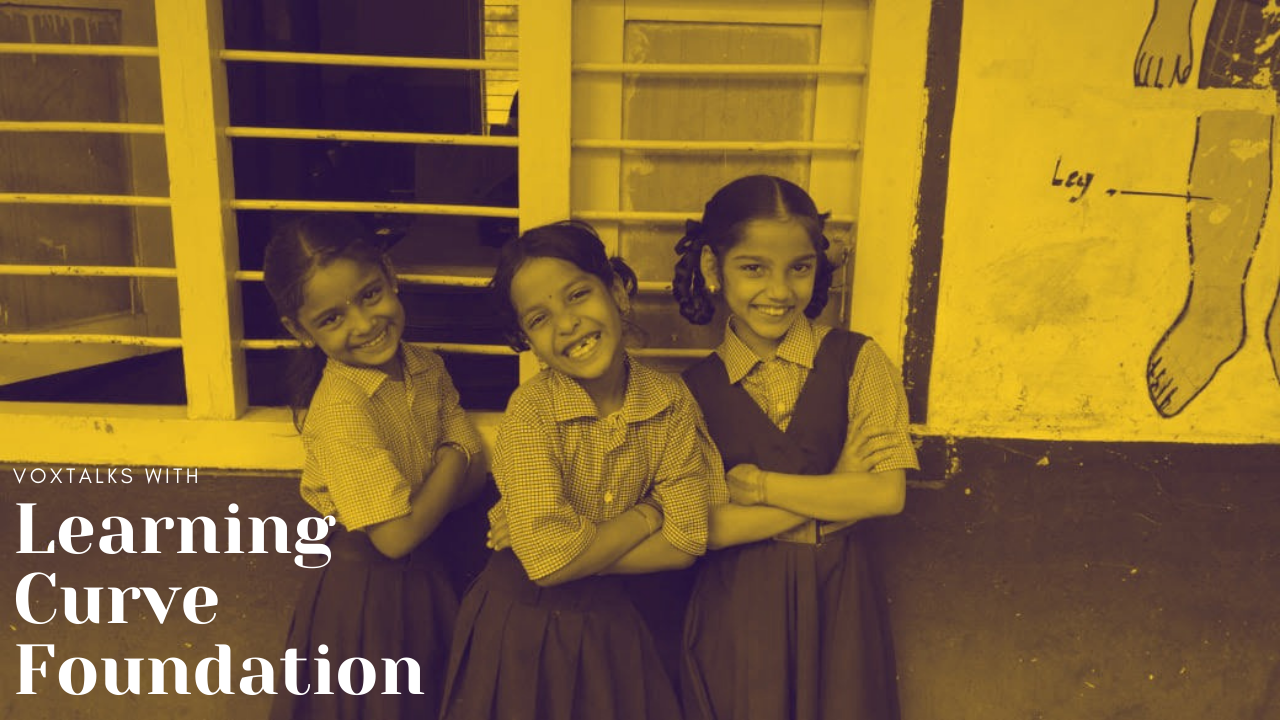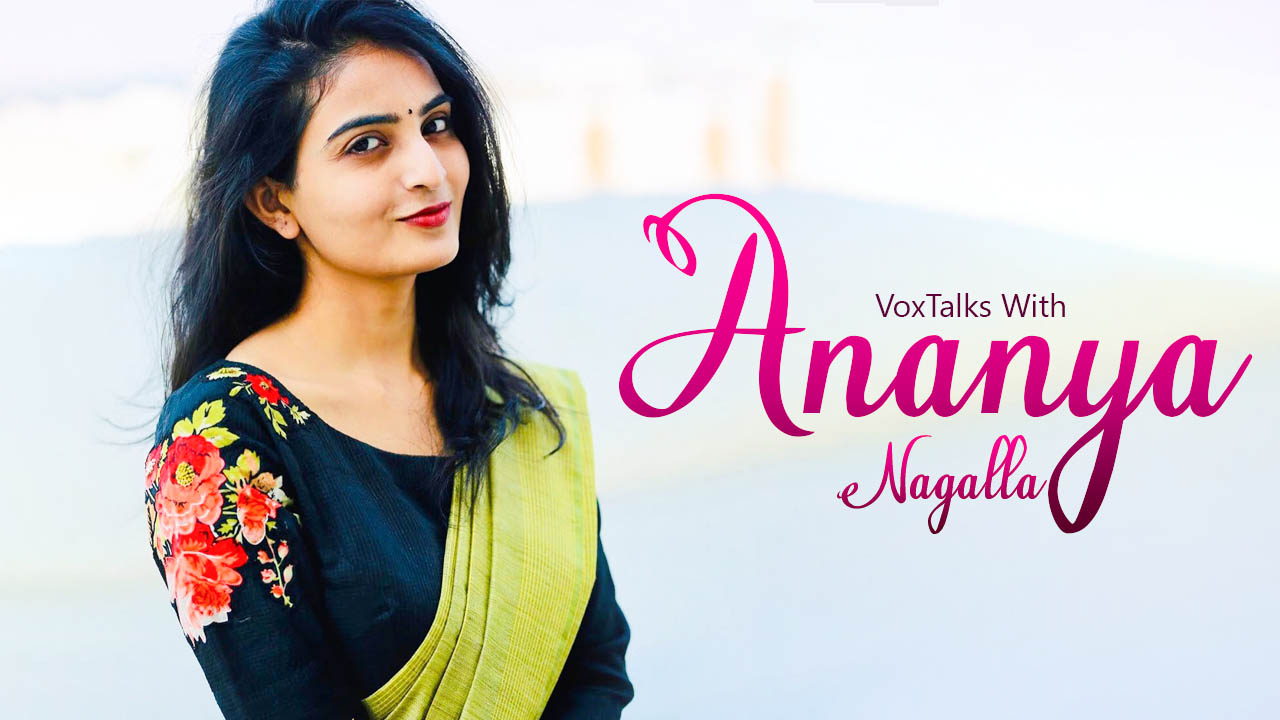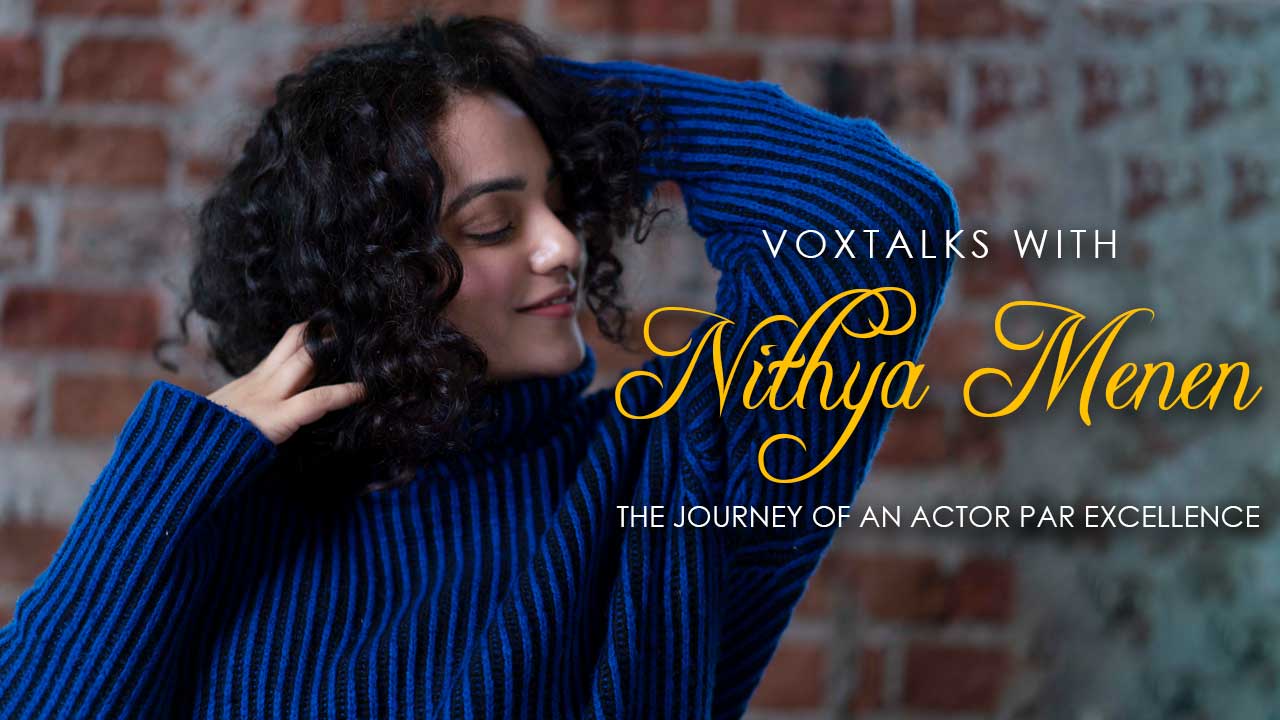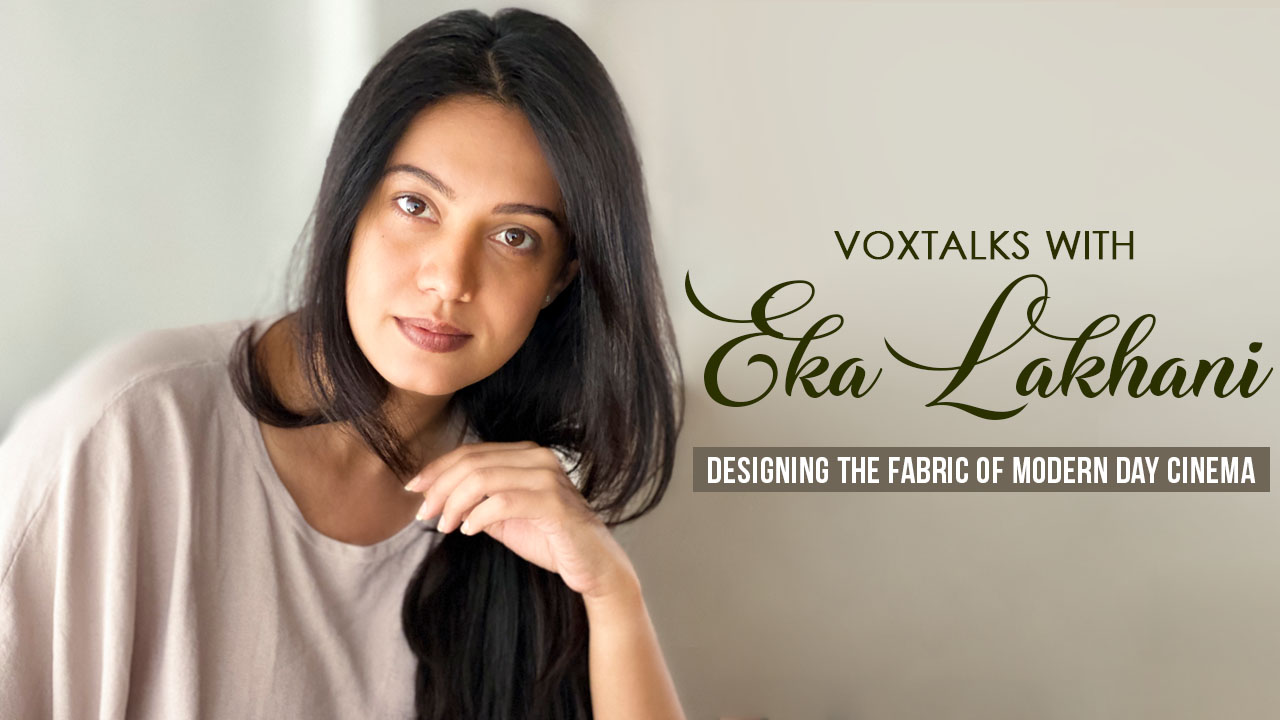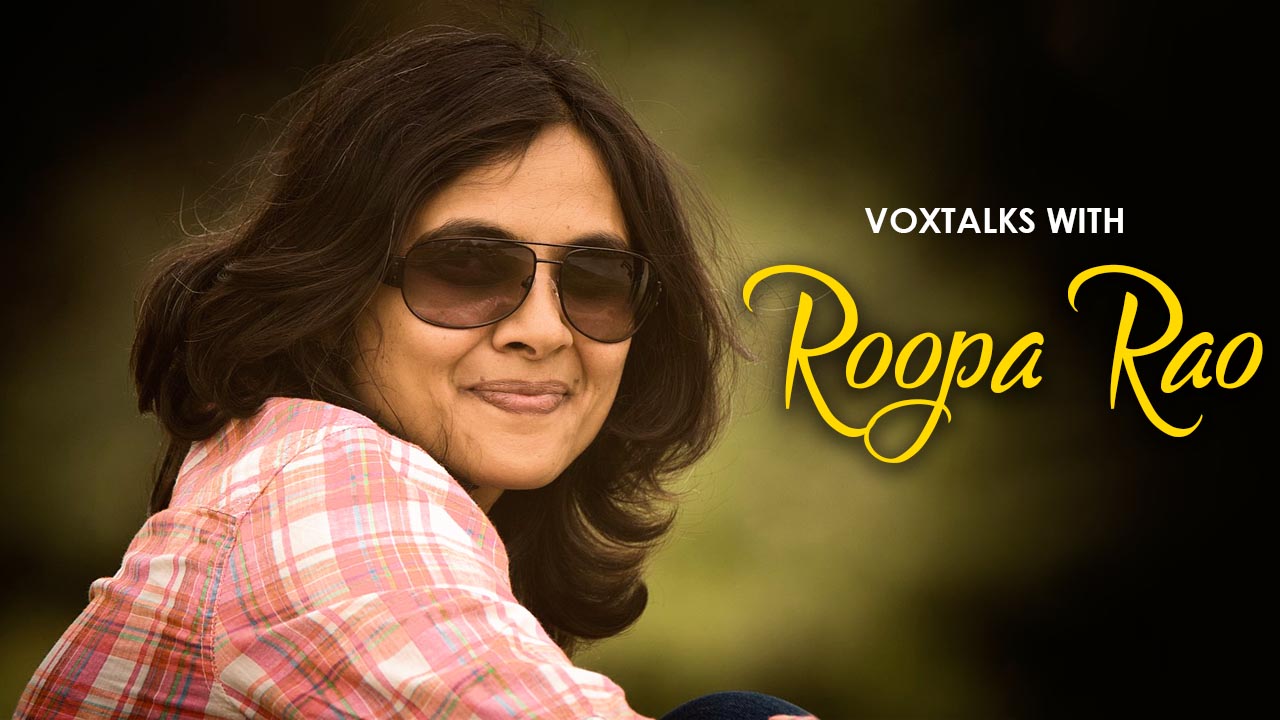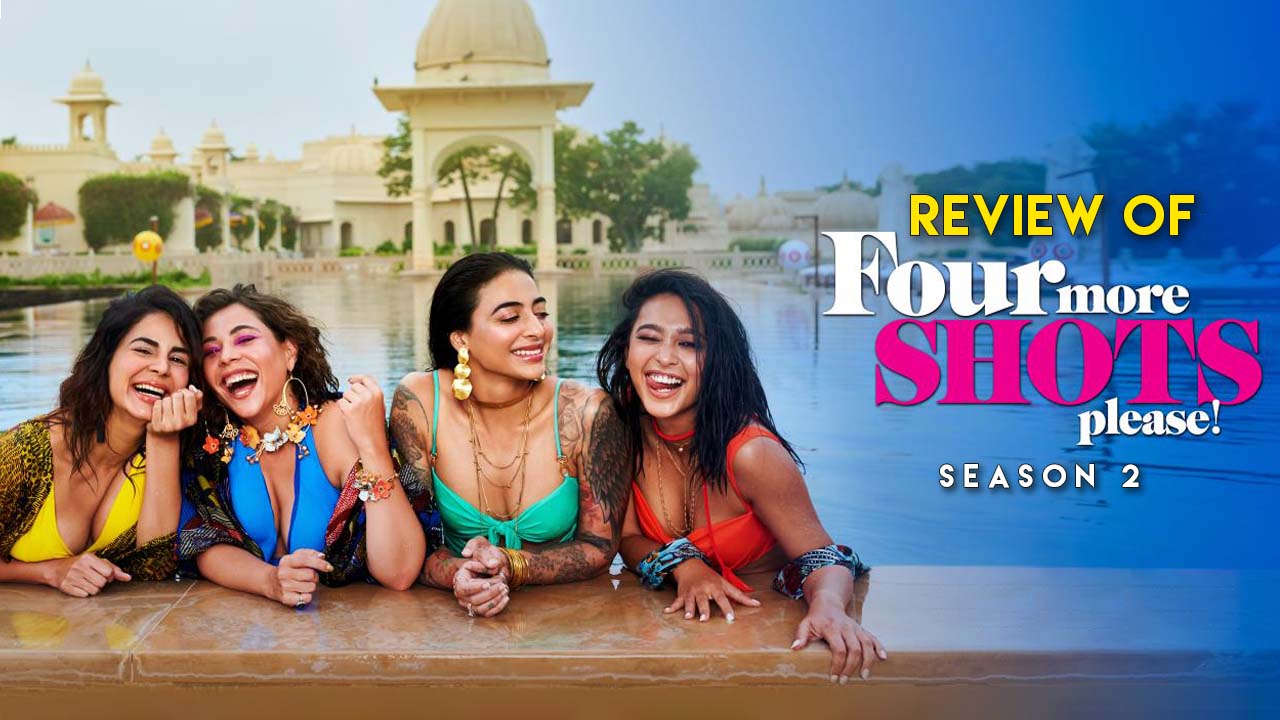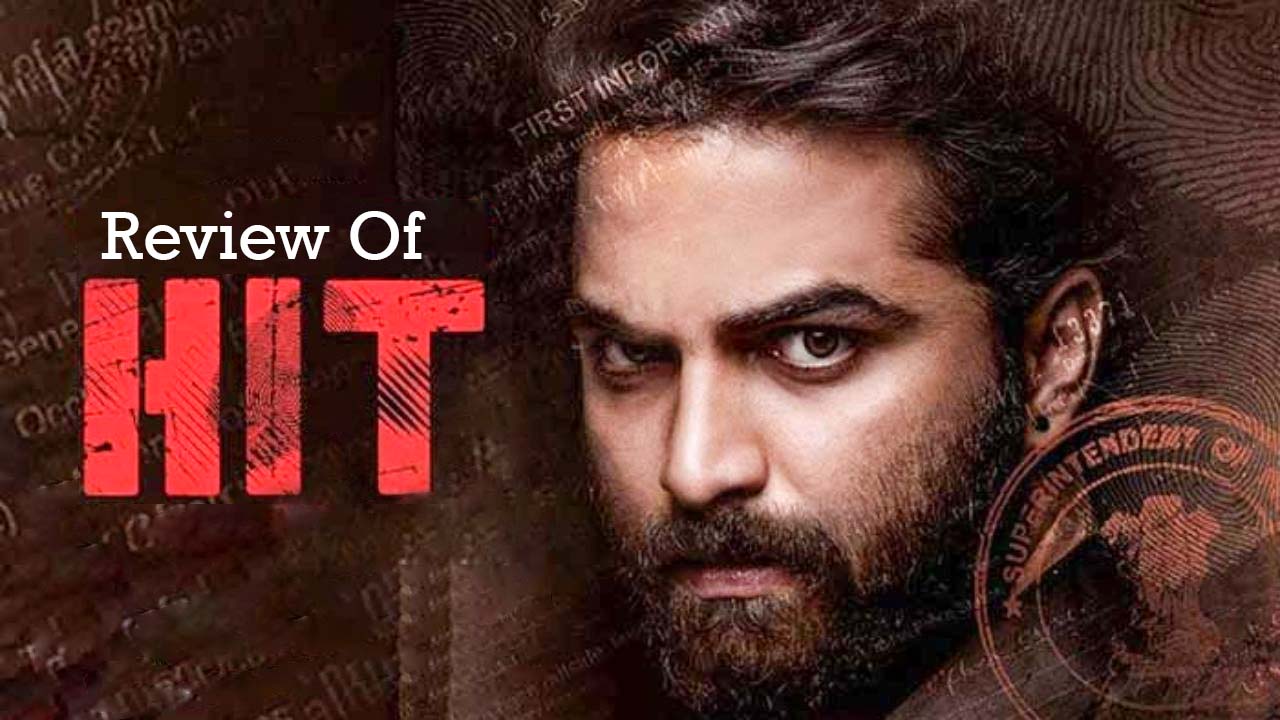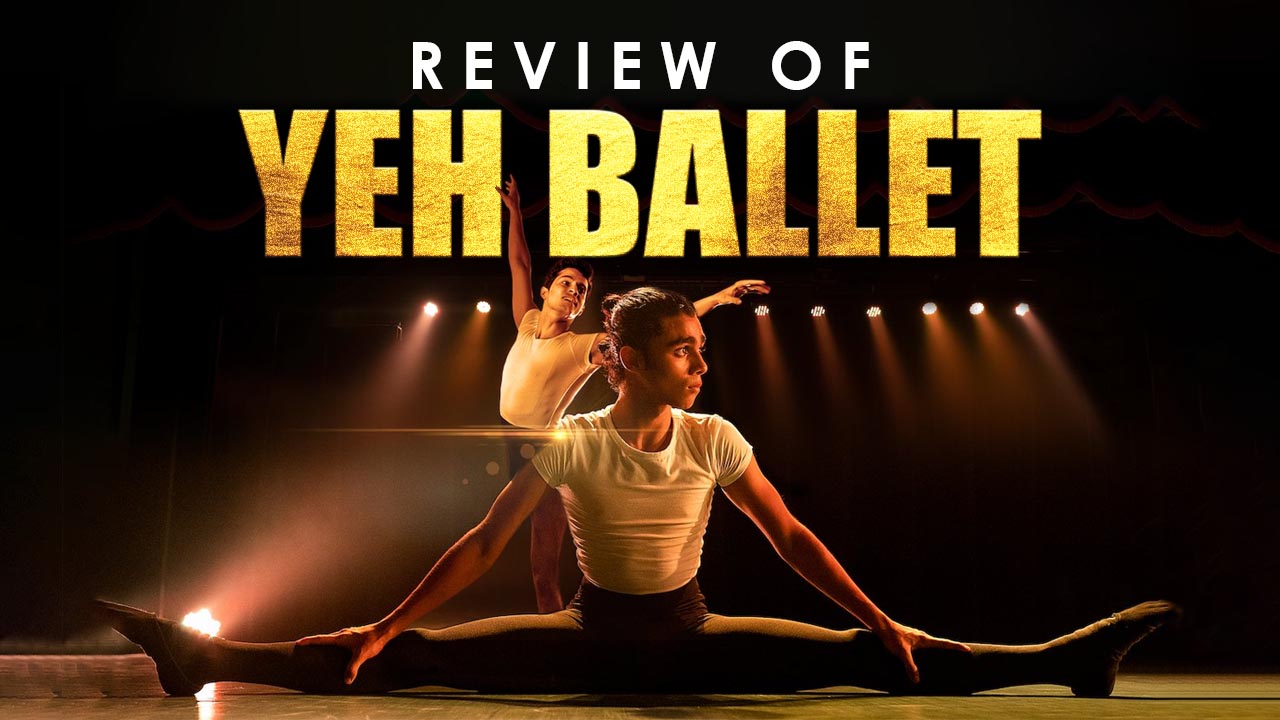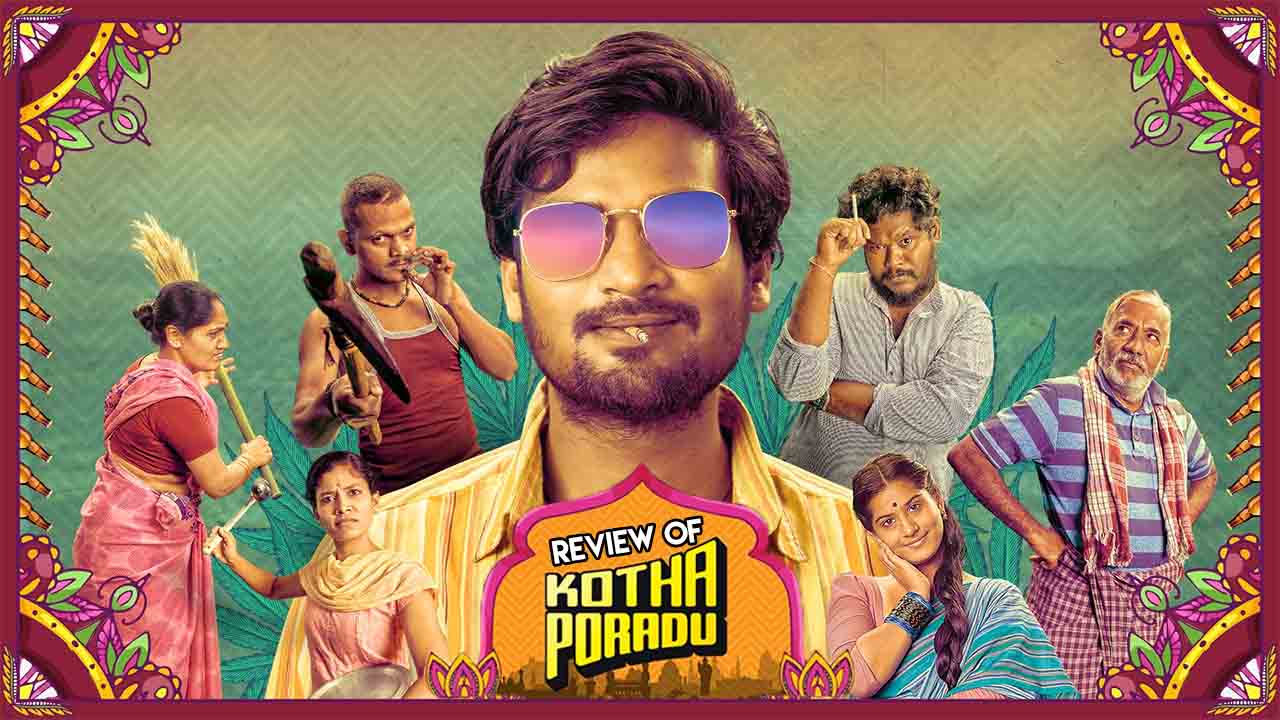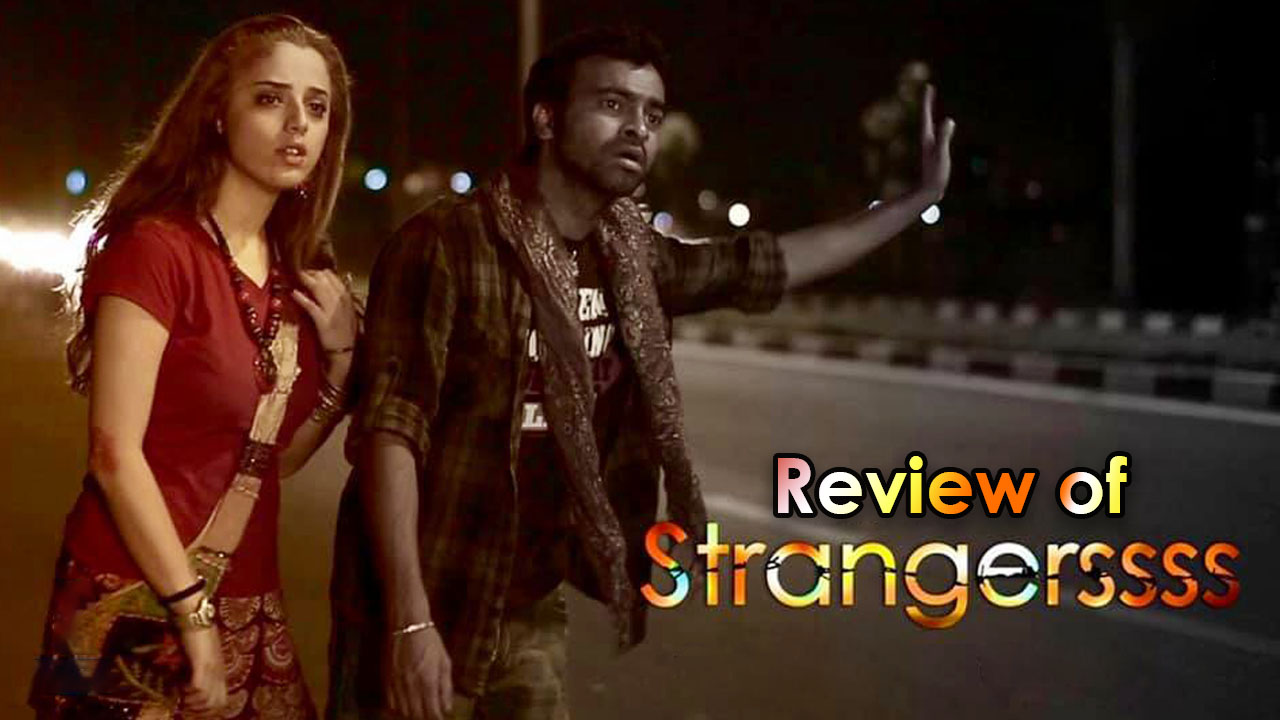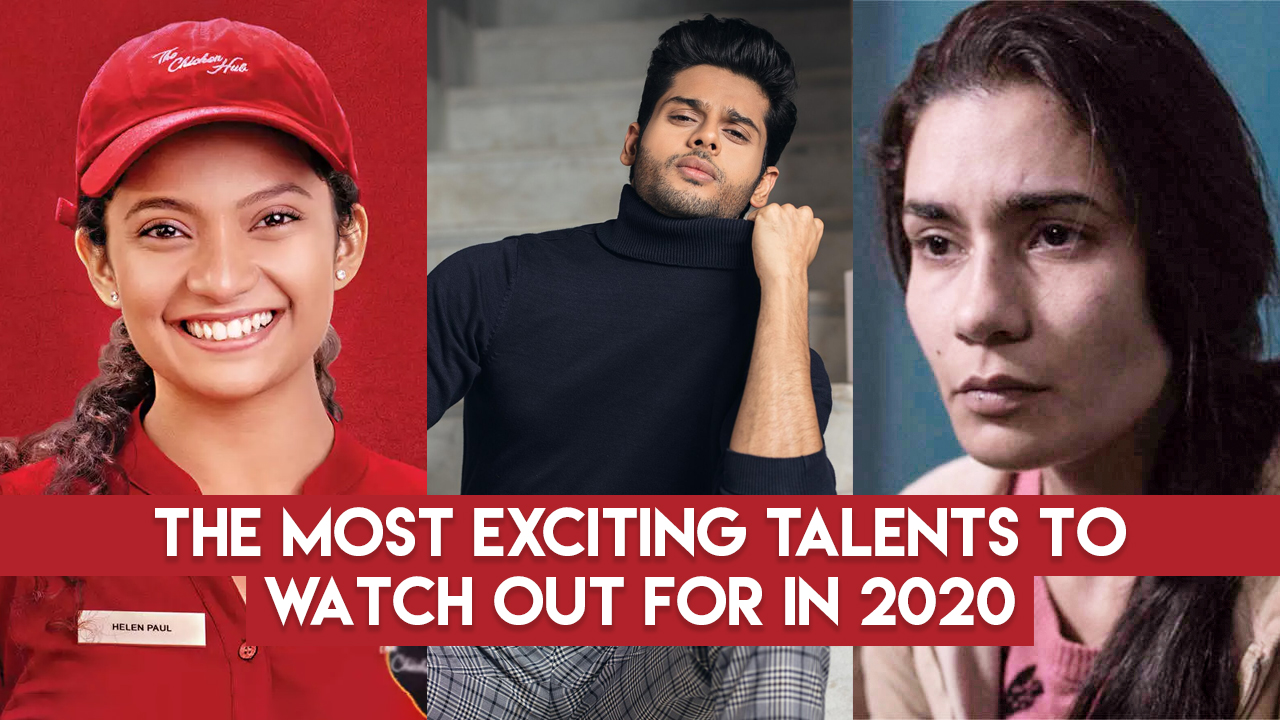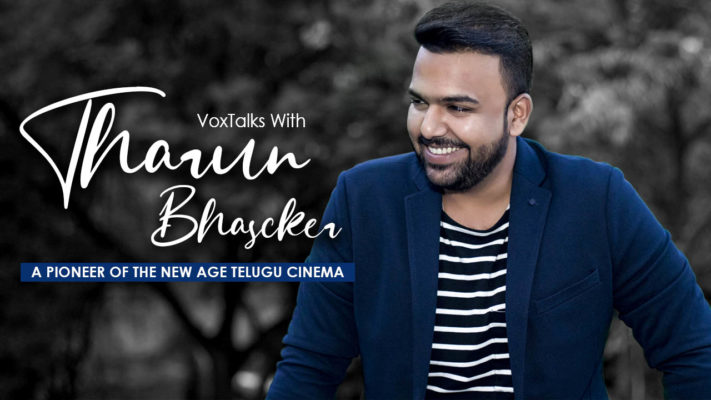
Tharun Bhascker : The Man With An Incredible Eye For Talent And An Insatiable Thirst For Innovation.
The Telugu film industry is having a kind of resurgence right now. The films that would have been blockbusters a year ago, are being taken out of theatres in a week. Films that would have been laughed out of the producer’s offices, are making bank at the Box-Office. So, there has been an unmistakable trend that is appearing. One of the pioneers of this trend is our guest today, Tharun Bhascker. He is a director, writer, actor, and editor. His debut, Pellichoopulu, radically changed the way people perceive Telugu cinema. He backed that up with the extremely fresh and breezy Ee Nagaraniki Emaindi. His cast completely consisted of newcomers to relative newcomers, leaving out some exceptions and his crew consisted of totally new talent. But, ever since then, the industry has taken notice of this totally new talent pool. From Vijay Devarakonda to Priyadarshi to Vivek Sagar to Vishwak Sen, these have become household names. Even though he has come so far from his short film day, the man still has the same childlike enthusiasm towards his craft. We had a fascinating little chat with the man, here are a few excerpts from that conversation.
This year has been very interesting for you. You have been doing a lot more acting work. Personally, we loved you in Falaknuma Das and Meeku Matrame Chepta seems very promising. Can you talk a bit about how that came about?
I have always had this clarity that I don’t want to compartmentalize in my head that, either I am a director or an actor or editor or writer. I just want to work in films, I want to keep it as playful as possible. I want the environment around me to be as enthusiastic as it did during my short films time. That is the kind of environment that is brewing right now and I am very happy about that. I recently wrote dialogues for an upcoming film by Sri Karthik, starring Sharwanand and Priyadarshi, which was a great experience. At the same time, I am cutting a trailer for a film that is yet to be released. I feel that if you are creatively bent and if you understand the aesthetics that go into film-making, you can try to do anything as long as you are good at it. I just don’t want to compartmentalize myself to one thing, that’s kind of boring to me. So, going forward also I am going to make the choice that seems artistically fulfilling to me. If someone finds it commercially viable to cast me in an interesting role, I will definitely do it as long as my learning curve is increasing. So far, I don’t regret my choices at all. Especially, working on Meeku Matrame Cheptha has taught me a lot in terms of acting and directing. It has been an amazing experience working on all these films.
Your films always have had a very clearly established theme, like friendship and guilt for Ee Nagarinike Emaindi, hope, and love for Pellichoopulu, etc. Does the theme come first or the premise?
So, for me, the universal theme has to come through because you can only dig from that well of emotion that you very intensely feel about. That will serve as a moral compass for you as a writer to help with plot progression, character development or exposition. So, you have to draw from that. Otherwise, I feel like I will get lost in the process. See, there’s another school of thought, where you start off with a premise and then, you have some inciting incident, you have some conflict, and then you know how it’s going to resolve. But as you kind of develop the film, you need to start looking for a theme already, or it will emerge and you need to grasp on to it. Because that is your voice and that is the only thing that the audience will walk out thinking about. So, you have to either find it along the way or have it from the beginning. For me, I really need to know what I’m talking about before I do.
I have always loved the razor-sharp dialogue in your films, which is hilarious but seems very organic, reminds me of a lot of Judd Apatow’s work. What is your dialogue writing process like? How many drafts do you need to get through to get it sound so natural?
For me, it’s just a couple of things, man. I write from a perspective of the characters and I try to be as colloquial as possible. So far, I’ve only made films that are a very slice of life and kind of realistic. At a point where I wanted to be a filmmaker, there were a lot of films that had dialogue that felt very stilted and staged. They felt like theatrical plays. That kind of dialogue is used in plays because they want to reach the last person in the audience. They can only understand the emotionality of the character by hearing the loud dialogue, as they can’t see the stage so clearly. But we don’t need to do that in a movie theatre, that’s the beauty of it. Now, we have such great cameras, and every screen, be it in the theatres or at home, have such great clarity. You can see every little detail on an actor’s face. So, we have to tone down the loudness of the dialogue, because there is no need for it.
Instead, we have to become a lot more colloquial and try to have real conversations with the audience. I also think that dialogue is the least important thing when you are writing a story. I do not like to rely on my dialogue to progress the plot forward. Even if you remove the dialogue, you should feel the film. Films by Pixar’s Wall-E or a lot of Charlie Chaplin or Buster Keaton films have taught us that you don’t need dialogue to make an audience feel something. Take even the scene in Pulp Fiction, where two characters are talking about cheeseburgers. Cheeseburgers don’t have anything to do with the plot, but subtly Tarantino is telling us a lot about the character’s background, without stating it outright. That only works when you are really rooted in the milieu, that you set your film in. That is all I have tried to do.
This is a personal question of mine. It seems like you use montages a lot in your films to show the passage of time. What I wanted to find out is, how do you plan a montage out at a script level and how much of it is improvised?
I would say, I write 80 percent of it. When you are writing montages, you have to look at it as an abstraction. Sometimes, it resonates with the theme, sometimes it helps to compress time or progress time. You can find some cool moments on set, but I would say, you should always have a blueprint before going to set. I always try to script everything, including montages, before going to set. Anything extra is just magical.
You have had a lot of frequent collaborators over your career in terms of your editing, music, etc. Can you talk to us a little bit about that?
Yeah, so it’s always been like a family for me. I think it is like a big herd of people, camping in different places but belonging to the same tribe. It seems like that. I think wavelengths have to match when you are working together creatively. We first met as friends, we had an affinity towards each other, and then started working together. So, I think the foundation of our relationship is actually friendship. We were on this mission to create what we thought was good content. We used to meet on the weekends at cafes and discuss cinema. These conversations we used to have, were always engaging and constructive. Be it, my editor Ravi Teja, my composer Vivek Sagar, my line production team Vinoothna Geetha, or my actors. I feel that all of us are on the same plane. So, I don’t think that will ever change. If I work with someone and I get really bad vibes, automatically I shut down. So, it’s become a habit for me to go back to my gang, per se.
I don’t think you need to rely on professionals. There’s no such thing as professional. We are all in this art form. We are evolving constantly. We are constantly making and learning from our mistakes and trying to create something beautiful out of a chaotic world. It never occurred to me even when I was making a short film also, that I should get somebody from the industry who is supposed to know everything. I don’t think we need to get the “best” to create the best, everything is a collaboration and only when we all strive together, we create something worthwhile.
You are one of the only staunch supporters of sync sound in TFI. Why is it that most people do not opt to go for sync sound and what is it that you really like about it?
So, what’s happening is a lot of people stick to the norms, just to be safe. That stems from a lot of insecurity, is what I believe. Even I was from that same school of thought, I thought that dubbing gives a cleaner sound and I think let’s just go for it. That is a baseless assumption. I have to thank Sanjay das from Tapeloop for introducing me to the concept of sync sound. I started understanding the difference it brings on to the entire creative process. I still vividly remember the conversation I had with Sanjay and experimenting with sync sound for this short film called Sainma. That really made me understand my own style. It kind of shattered certain boundaries that we had as filmmakers. It actually made me go beyond just the norms of that time. Sync sound gives your actors freedom to basically participate in the dialogue, participate in the creative process of filmmaking. It also allows us to catch the smaller nuances of their pauses, delicate little things. Take, for example, the way I’m stuttering, the way I’m kind of pausing, the mistakes. That is what makes something authentic and beautiful.
If you see in the market right now in terms of lensing, anamorphic lenses are in vogue. I even used them for my last film. Spherical lenses are much clearer. They do not have vignetting and they do not have any artifacts. They give extremely sharp visuals. Whereas anamorphic lenses give you a look that is a lot more oval, it does not give you proper focus. Now, why have we started using anamorphic lenses again? It’s because the small mistakes give the visual more character and texture. Similarly, the same goes with life, it’s the small little mistakes and surprises that make living worth it. There is this beautiful term that someone mentioned called collateral beauty. It refers to the beautiful side of collateral damage. The moments where you had to care for someone and they had to do the same with you. The vulnerability you shared together. That is the same philosophy I carry over to my films, hence I would always prefer sync sound.
The only problem that the naysayers’ state is that you cannot control the ambient sounds, especially in a metropolitan city like ours. If you follow a certain kind of discipline that is required when you go for sync sound, you will not have a problem. We cannot control the ambient sounds true, but if you do your recce properly if you identify your problems smartly. For example, if there is a temple or school, find out their timings, and schedule your shoot properly. That should never be a problem if you plan properly. That kind of discipline actually makes your crew more cautious and conscious of what you’re shooting. So, everybody’s giving all the attention to the art form, and I think that’s only going to make it better. So, I say, don’t try to make choices as a filmmaker to make your life easier. Instead, try to make choices which gives more importance to the filmmaking process.
I have always admired the casting in your films. Even when you have worked with relative newcomers, they have given very natural and sometimes star-making performances. What is your casting process like?
The first thing is an actor has to be a little sensitive, and he/she also has to be extremely observant. They have to be good at mimicking people or at least pretty extroverted in terms of expression. I’m not saying that I will never choose introverted people as actors because introverts become great actors sometimes. But, initially I look at people who are very open, you know, people who enjoy different cultures, people who like learning about people.
There is this beautiful story about how Akbar chose Birbal. I keep the story in my mind, every time I have to make a casting choice. So, apparently Akbar was in disguise going around his kingdom looking for a good little minister. He comes across these people huddled together enjoying a play, where two people are in a cow costume. They were grazing, moving around and behaving exactly like a cow, in proper co-ordination. Everyone is clapping except for Birbal, who is also in the crowd. Akbar immediately thinks that this guy is a very arrogant man, due to his lack of appreciation for the act. Birbal then takes a stone from the ground and throws it at the cow and suddenly it shudders. Everyone is shocked but Birbal claps. So, it is those details that make a great actor. It’s not how you act but it’s all about how you react. Just saying a line super-fast and breathlessly, people consider it acting. The sad fact is lines like that get cheers and hoots in theatres and people continue to believe that is great acting. That is not acting, that is a farce. It is the moments or voids between the lines. What an actor does with silence is what constitutes great acting in my book.
One more thing that is extremely important for me when I’m casting, which is very important for my process also is the life that led him/her to be who, he/she is as of now. Let’s say, one of my characters hates money and it is because he/she has seen how money destroys the interpersonal relationships in their family. I try to look for those similar life experiences in the actor because it makes it easier for him/her to emote that feeling. I have a casual conversation with all of my actors, be it Vishwak Sen or Sushanth. Unfortunately, I have to judge them. I obviously compartmentalize my thoughts for the sake of my work, but somehow it has always worked for me.
Related to that, what is your preparation like before the shoot?
There is hardly any prep before the shoot. So far, I have not done any mythological or action-oriented films. Hopefully, I will do those in the future. Now that I am writing something sports-oriented, there might be some physical prep for that. Its all about the casting process. If I have done my job properly in casting, I can just let the actors be free. It also lets them be spontaneous and not be stuck in a routine.
Are there any actors you would really like to work with?
Absolutely, I would love to work with someone of the caliber of Nawazuddin Siddiqui or Pankaj Tripathi or Bramhanandam garu. I would also like to work with Parvathy Menon, I was bowled away by her performance in Uyare or Fahadh Faasil, eventually, I hope. Even my own actors obviously, I would like to work with Vijay again, also Rashmika Mandanna is another great find for the industry that I would like to work with. A list of random names, but there are lots of people I would love to work with.
There is a lot of talent out there, man. I have been recently introduced to TikTok via my wife Latha. She was showing some beautiful and amusing random people, from colleges, from all walks of life, coming on to these platforms and doing these videos. I believe there is some genuine talent to be found there, I am super excited.
There has been a constant rise in online content due to the vast number of OTTs out there. We even saw that a script that you had written came out as a web series in the form of B.Tech. What is your opinion on the whole phenomenon and can we expect anything from you on that front?
I’m definitely very interested to work with OTTs. Number one is because they have a lot of data, that gives them a lot of insight into the psychological profiling of their audience. That gives us a better idea, as to how people are watching content, what they are watching, how long they are watching, etc., very crucial data. I mean we don’t even know what the average age of the Telugu audience is. OTTs offer that kind of clarity, regarding our audience. All this data is great for a filmmaker to get better at his craft because he/she knows who he is catering to. I am always willing to work with any platform as long as I can make the content I want to make. I am currently working with Viu for a really cool web series. I am also working with Netflix as one of the four directors for the Telugu version of Lust Stories. I am also in talks with Hot Star, Amazon Prime, YeppTV and Zee5. All of them have been amazing to work with.
I love certain disciplines in the corporate sector. They ask you for the story Bible, they ask you for character arcs. They want to understand the entire universe of your characters, and I think they’re slowly focusing upon good writing. That is a healthy sign for any industry. Unfortunately, in the film industry, we are very skeptical, we do not have enough data. We sometimes solely rely upon experience, which is based upon certain conditioning, just like throwing darts in a dark room. There is a potential of breaking even bigger records, if we break these old patterns that are engrained in the system. That can happen only with understanding your audience scientifically and that is what Ott platforms are doing. I think we should adapt to that, and the film industry should also accept that we should all collaborate. We should just look at cinema as a whole, as in, we shouldn’t compartmentalize it into a two-hour movie or a ten-hour web series or whatever. We should work with each other and I think that symbiotic relationship is very healthy right now.
Can you give us some of your biggest influences in terms of film-making?
Mani Rathnam:
The first time I realized the potential of what a film could do is when I watched Alaipayuthey. I romanticize his films to a point that, even if it doesn’t work, I try to dissect them to find something that I might have missed. I can not be objective about them. HAHA. I will fight people, if necessary, to defend his films. HAHA.
Jandhyala Garu:
I love the way he creates his characters, some of them are just timeless. These are the kinds of films I watch when I just want to sit at home and enjoy something fun. They are like comfort food to me. You can laugh your worries away, that’s the kind of cinema that gives hope in life.
Quentin Tarantino:
Love his dialogue and staging.
Martin Scorsese:
I can’t point to one thing. He operates at such a high level, that I just watch his films in awe.
Sandeep Reddy Vanga:
I found it very inspiring when I watched Arjun Reddy. I was shocked after watching a Telugu film like that. It was so intense. It made me sit up and think. A great film should provoke you to think and debate, you know.
I loved Sankalp’s work in Ghazi. I also like the works of Alphonse Puthren, Dileesh Pothan, Karthik Subbaraj or the films that Fahadh Faasil and Soubin Shahir, choose to be a part of. These guys are amazing. I am grateful that I have all these great works to look at, and they constantly inspire me.


